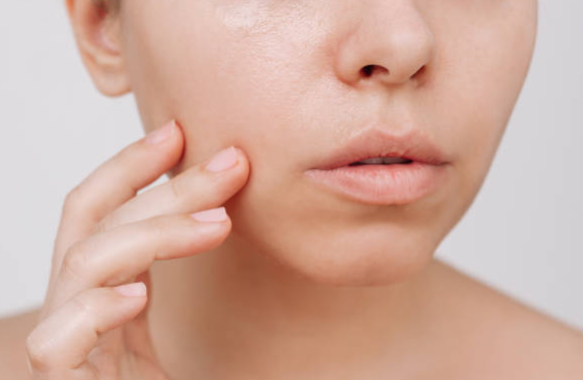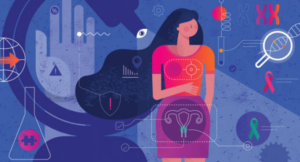Beauty products have long been hailed as miracle workers, promising to reverse the signs of aging, restore youthful vitality, and enhance natural beauty. From serums and creams to supplements and treatments, the beauty industry is constantly innovating and introducing new products designed to help consumers achieve their desired aesthetic goals. However, amidst the plethora of options available, there’s a growing concern surrounding the use of hormones in beauty products and its potential impact on our health and well-being.
In recent years, the beauty industry has witnessed a surge in the popularity of hormone-infused products, which claim to harness the power of hormones to deliver dramatic results. From estrogen creams and testosterone supplements to growth hormone serums and thyroid extracts, these products promise to rejuvenate the skin, boost hair growth, and even enhance libido. But while the allure of these so-called “fountain of youth” products may be tempting, many experts warn of the potential risks and dangers associated with their use.
In this comprehensive beauty blog, we’ll explore the controversial use of hormones in beauty products, examining the science behind their efficacy, the potential risks and side effects, and the ethical implications of their widespread use. By shedding light on this complex issue, we hope to empower consumers to make informed decisions about the products they choose to use on their bodies.
Understanding Hormones
Hormones are intricate chemical messengers produced by glands within the endocrine system. These messengers play a crucial role in regulating various bodily functions, including growth, metabolism, reproduction, and mood. The endocrine system consists of glands such as the pituitary, thyroid, adrenal, and reproductive glands, each responsible for secreting specific hormones that influence different aspects of bodily function.
- Estrogen: This hormone is primarily associated with female reproductive health, although it’s present in both men and women. Estrogen plays a vital role in regulating the menstrual cycle, promoting the development of secondary sexual characteristics, and maintaining bone density. In the context of skincare, estrogen is believed to contribute to skin hydration, collagen synthesis, and elasticity, helping to maintain a youthful complexion.
- Testosterone: Often referred to as the “male hormone,” testosterone is predominantly produced in the testes in men and the ovaries in women, albeit in smaller amounts. Testosterone is responsible for promoting muscle mass, bone density, and facial and body hair growth in men. In women, testosterone plays a role in libido, muscle strength, and overall well-being. In skincare, testosterone is sometimes used to stimulate hair growth and improve skin texture, although its efficacy and safety are still under scrutiny.
- Growth Hormone (GH): Produced by the pituitary gland, growth hormone plays a crucial role in promoting growth during childhood and adolescence. It also regulates metabolism, body composition, and cell repair and regeneration throughout life. In skincare, growth hormone is believed to stimulate collagen production, increase skin thickness, and reduce the appearance of wrinkles and fine lines.
- Thyroid Hormones: The thyroid gland produces hormones such as thyroxine (T4) and triiodothyronine (T3), which play a central role in regulating metabolism, energy production, and body temperature. Thyroid hormones influence virtually every organ system in the body, including the skin, hair, and nails. In skincare, thyroid extracts are sometimes used to boost metabolism and promote weight loss, although their efficacy and safety are a subject of debate.
While these hormones play essential roles in maintaining overall health and well-being, their use in beauty products raises significant concerns regarding safety, efficacy, and potential side effects. Hormones are powerful substances that can have far-reaching effects on the body, and their use in skincare and beauty products may disrupt delicate hormonal balance and lead to a host of health problems.


The Science Behind Hormone-Infused Beauty Products
The idea of harnessing the power of hormones for cosmetic purposes is not new. In fact, hormone therapy has been used for decades to treat various medical conditions, including menopausal symptoms, hormonal imbalances, and thyroid disorders. However, the use of hormones in beauty products represents a more recent phenomenon, fueled by the desire for quick fixes and instant results in the quest for eternal youth and beauty.
Proponents of hormone-infused beauty products argue that these formulations can deliver targeted benefits that conventional skincare products cannot. For example, estrogen creams are marketed as a way to combat the effects of aging by promoting collagen synthesis and improving skin tone and texture. Similarly, growth hormone serums claim to stimulate cell regeneration and increase skin thickness, resulting in a more youthful appearance.
However, while some studies have shown promising results, the scientific evidence supporting the efficacy of hormone-infused beauty products is often limited and inconclusive. Moreover, there are significant concerns regarding their safety and potential side effects, particularly when used long-term or in high concentrations.
Risks and Side Effects
The allure of hormone-infused beauty products lies in their promise of dramatic results, but the potential risks and side effects associated with their use cannot be overlooked. Hormones are potent substances that regulate numerous physiological processes in the body, and their introduction into skincare and beauty products raises significant concerns regarding safety, efficacy, and potential health implications.
- Hormonal Imbalance: One of the most significant risks associated with hormone-infused beauty products is the potential for hormonal imbalance. Hormones play a delicate balancing act in the body, and even slight disruptions to their levels can have far-reaching effects on health and well-being. Using products containing hormones such as estrogen or testosterone may disrupt this delicate balance, leading to a range of hormonal imbalances and associated symptoms.For example, estrogen creams or serums may lead to an excess of estrogen in the body, which can disrupt menstrual cycles, increase the risk of hormone-dependent cancers such as breast or uterine cancer, and exacerbate conditions such as endometriosis or polycystic ovary syndrome (PCOS). Similarly, testosterone supplements may cause an imbalance in androgen levels, leading to acne, hirsutism (excessive hair growth), and mood swings, particularly in women.
- Skin Irritation and Sensitivity: Hormone-infused beauty products have the potential to cause skin irritation and sensitivity, particularly in individuals with sensitive or reactive skin. Hormones such as estrogen and testosterone can be potent allergens, leading to redness, itching, inflammation, and other adverse reactions when applied topically.Additionally, many hormone-infused beauty products contain other active ingredients or preservatives that may further exacerbate skin irritation and sensitivity. For example, fragrances, dyes, and preservatives commonly found in skincare products can trigger allergic reactions and sensitivities, particularly in individuals with pre-existing skin conditions such as eczema or dermatitis.
- Hormone-Dependent Cancers: Perhaps the most concerning risk associated with hormone-infused beauty products is the potential for an increased risk of hormone-dependent cancers. Estrogen, in particular, has been implicated in the development of breast and uterine cancer, and its use in skincare products may pose a significant risk, particularly for women with a family history of these cancers or other risk factors.While the direct link between estrogen-containing beauty products and cancer risk is still a subject of debate, some studies have suggested a potential association between long-term estrogen exposure and an increased risk of hormone-dependent cancers. As such, individuals considering the use of hormone-infused beauty products should weigh the potential risks against the perceived benefits and consult with a healthcare professional or dermatologist if they have concerns.
- Environmental Impact: In addition to the potential risks to human health, hormone-infused beauty products may also have adverse effects on the environment. Once these products are washed off and enter the water supply, they can accumulate in the environment and have detrimental effects on aquatic ecosystems and wildlife.Moreover, the production and disposal of hormone-infused beauty products may contribute to pollution and environmental degradation, further exacerbating their impact on the planet. Ingredients such as hormones, preservatives, and other active ingredients found in these products can persist in the environment and bioaccumulate in the food chain, posing risks to human and environmental health alike.


Ethical Considerations
In addition to the potential health risks and environmental concerns, there are also ethical implications associated with the use of hormones in beauty products. Many critics argue that the widespread use of hormone-infused products perpetuates unrealistic beauty standards and preys on consumers’ insecurities and fears of aging.
Moreover, the marketing tactics employed by companies selling these products often rely on fear-mongering and pseudoscience to convince consumers of their efficacy. By promoting the idea that hormones are the key to eternal youth and beauty, these companies perpetuate harmful stereotypes and undermine the importance of embracing natural aging and self-acceptance.
Furthermore, the use of hormones in beauty products raises questions about transparency and informed consent. Many consumers may be unaware of the potential risks associated with these products or the lack of scientific evidence supporting their claims. As such, there is a need for greater transparency and regulation within the beauty industry to ensure that consumers are empowered to make informed choices about the products they use on their bodies.
In conclusion, while hormone-infused beauty products may promise miraculous results, the potential risks and dangers associated with their use cannot be ignored. From hormone-dependent cancers to environmental pollution and ethical concerns, the use of hormones in beauty products raises a host of complex issues that demand careful consideration.


As consumers, it’s important to approach these products with a critical eye and a healthy dose of skepticism. Instead of relying on quick fixes and miracle cures, focus on cultivating a holistic approach to beauty that emphasizes self-care, healthy lifestyle habits, and acceptance of natural aging.
By prioritizing products that are backed by scientific evidence, transparent labeling, and ethical manufacturing practices, you can ensure that your beauty routine is not only effective but also safe, sustainable, and aligned with your values and beliefs. Remember, true beauty comes from within, and it’s far more than skin deep.



